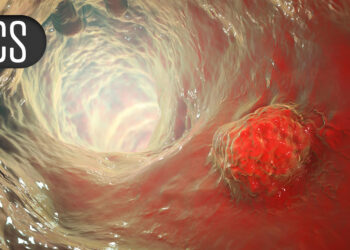
We don’t drift off to sleep; we suddenly fall into slumber
DedMityay/Shutterstock
The brain doesn’t gradually fall asleep. Instead, it reaches a tipping point at which it rapidly transitions from wakefulness to sleep in a matter of minutes – a discovery that could improve our understanding and treatment of sleep disorders like insomnia.
“Although sleep is so fundamental to our life, how the brain falls asleep has been a mystery,” says Nir Grossman at Imperial College London. It has widely been believed to be an incremental process, in which the brain steadily transitions from wakefulness to sleep. But evidence supporting this has been limited.
Grossman and his colleagues devised a new framework for studying how the brain behaves while we fall asleep using electroencephalography (EEG) data. This test, which records electrical activity in the brain, indicates sleep stages and wakefulness. The team modelled 47 EEG signals in an abstract mathematical space where each data point had coordinates as if it were a point on a map. This allowed the team to plot brain activity during wakefulness and track it as it moved towards what they call the sleep-onset zone, where brain activity corresponds to the second stage of non-rapid eye movement (NREM) sleep.
“We can now take an individual, measure the brain activity, and in each second, say how far they are from falling asleep, every moment, with a precision that was not possible before,” says Grossman.
They applied this approach to EEG data collected from more than 1000 people as they fell asleep, measuring the distance between brain activity and sleep onset. On average, this distance remained largely unchanged until 10 minutes before sleep and then dropped abruptly in the last few minutes. This tipping point – which occurred an average of 4.5 minutes before sleep – is the exact moment when the brain switches between wakefulness and sleep, says Junheng Li, also at Imperial College London. “[This] is the point of no return,” he says.
These results suggest the transition from wakefulness to sleep “isn’t an incremental progression. It is an abrupt, drastic change that occurs in the last few minutes”, says Grossman. As such, how we describe entering sleep – usually as “falling” – largely mirrors what is happening in the brain. “It’s almost evidence of this sensation of falling into a different state,” says Grossman.
The team then collected EEG data from a separate group of 36 people, monitoring each participant’s sleep for about a week. Using a subset of those nights, they could predict when participants would fall asleep within a minute of the actual moment.
“What that suggests to me is that while people are very different from each other, each individual person may have their own path to sleep that they tend to repeat night after night,” says Laura Lewis at the Massachusetts Institute of Technology. But it isn’t clear if that pattern would change under different circumstances, such as sleeping in a new place, she says.
This framework also doesn’t uncover the brain mechanisms that drive the transition to sleep, says Li. But it could help us do so in the future, says Lewis. “With sleep onset, it has been really difficult for us to find that moment,” she says. “If we knew when that was, then we could start to say, what is the brain region or circuit that is making somebody fall asleep?” By understanding the dynamics of this transition, we may also be able to identify how they differ in those with insomnia, potentially leading to new treatments for the condition, she says.
Topics:
Source link : https://www.newscientist.com/article/2503413-falling-asleep-isnt-a-gradual-process-it-happens-all-of-a-sudden/?utm_campaign=RSS%7CNSNS&utm_source=NSNS&utm_medium=RSS&utm_content=home
Author :
Publish date : 2025-11-10 15:00:00
Copyright for syndicated content belongs to the linked Source.













